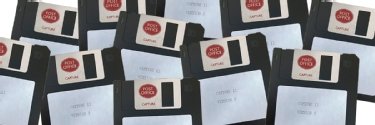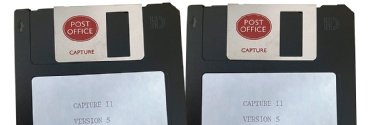TechTarget News
News from TechTarget's global network of independent journalists. Stay current with the latest news stories. Browse thousands of articles covering hundreds of focused tech and business topics available on TechTarget's platform.Latest News
-
06 Feb 2026
GenAI drives $119B cloud revenue in Q4
By Kathleen CaseyQ4 cloud infrastructure service revenues reach $119.1 billion, bringing the 2025 total to $419 billion. See how much market share AWS, Microsoft and Google hold.
-
06 Feb 2026
HoloMem demos backward-compatible holographic storage
By Alexander S. GillisHolographic data storage has the potential to compete with existing magnetic tape drives for cold storage, and one company has a plan to make it commercially viable.
-
06 Feb 2026
News brief: Ransomware trends show new twists to old game
By Staff reportCheck out the latest security news from the Informa TechTarget team.
- Latest news from around the world
All News from the past 365 days
-
06 Feb 2026

Nearly half of TrumpRx drugs have generic options available
By Alivia Kaylor, MScOf the 43 drugs listed on TrumpRx, 20 have generic versions available in the United States. And most others can be purchased through previously existing discount programs.
-
06 Feb 2026

Channel catch-up: News in brief
By Simon QuickeDevelopments this week at Insight, Westcon-Comstor, Infinigate UKI, Assured Data Protection and TP-Link, and Palo Alto Networks
-
-
06 Feb 2026

NHS publishes tech-laden cancer plan
By Lis EvenstadThe 10-year plan promises to transform cancer care through use of artificial intelligence, robotic surgeries and access to genomic testing, all wrapped up in the NHS App as the front door
-
06 Feb 2026

Australia’s CommBank partners business school to research artificial intelligence
By Karl FlindersCommBank wants to better understand how its customers perceive, use and trust artificial intelligence, as the technology is set to reach every corner of the finance sector
-
06 Feb 2026

Private LTE/5G networks reached 6,500 deployments in 2025
By Joe O’HalloranAnalysis of private 5G market finds steadily growing market that is increasingly driven by organic demand from end users, with WAN and enterprise segments of near equal worth
-
06 Feb 2026

AWS Q4 results: Public cloud giant continues to reap rewards of enterprise demand for AI and IaaS
By Caroline DonnellyPublic cloud giant Amazon Web Services claims the final quarter of 2025 saw it achieve its fastest rate of growth in 13 quarters
-
06 Feb 2026

Mitel emphasises consultancy and vertical expertise
By Simon QuickeComms player Mitel introduces unified partner programme with increased enablement and a focus on differentiation
-
06 Feb 2026

Minister responds to criticism of Post Office Capture redress scheme
By Karl FlindersRedress claim on ‘pause’ as UK government agrees to look at complaints about scheme for those who suffered hardship from using the Post Office Capture system
-
06 Feb 2026

Virgin Media O2 accelerates automation across mobile network
By Joe O’HalloranUK telco teams with cloud-first tech modernisation firm to deploy AI-driven automation technology to minimise downtime across mobile network, resolve issues faster and anticipating faults before escalation
-
-
06 Feb 2026

Virgin Media O2 accelerates automation across mobile network
By Joe O’HalloranUK telco teams with cloud-first tech modernisation firm to deploy AI-driven automation technology to minimise downtime across mobile network, resolve issues faster and anticipating faults before escalation
-
06 Feb 2026

ANZ rolls out AI agents for business bankers
By Aaron TanAustralian lender claims to be the first in Asia-Pacific to deploy Salesforce Agentforce at scale, following a national roll-out of a CRM platform that consolidates data from different systems to ease administrative toil
-
05 Feb 2026

Why traditional automation is key to avoid the AI solution trap
By Stephen WithersBoards are pushing for AI, but Nintex CTO Niranjan Vijayaragavan warns that AI projects are destined to fail without a foundation of traditional automation and clean data
-
05 Feb 2026

Abridge, Microsoft earn top spots for revenue cycle tech
By Jacqueline LaPointeKLAS released its list of top vendor solutions for health IT, including revenue cycle management technology and services.
-
05 Feb 2026

Hyundai Motor Group and Vodafone IoT deploy connected cars across MENA region
By Joe O’HalloranInternet of things division of leading European telco partners with Korean motor giant to power connected cars in five countries across the Middle East, claiming reliable and secure in-car connectivity that is fully compliant with regional laws
-
05 Feb 2026

Governance lags agentic AI adoption in the UK, says Salesforce
By Brian McKennaSalesforce's ‘2026 Connectivity benchmark report’ points to an increase in enterprise agentic AI deployment, but highlights governance gaps and a siloed system that requires better orchestration
-
05 Feb 2026

Epic's AI Charting goes live
By Jill HughesSeven healthcare organizations have implemented Epic's AI Charting tool since it was announced in August, with more going live in the coming weeks.
-
05 Feb 2026

SolarWinds looks to build pipeline with partners
By Simon QuickeAnnouncement of enhanced channel programme by SolarWinds is seen as a commitment to support and grow the business
-
05 Feb 2026

ISE 2026: Maxhub unveils partnerships, products to enrich unified collaboration
By Joe O’HalloranProvider of integrated commercial display and unified communications takes advantage of enterprise AV expo to announce further collaborations with tech leaders to create enhanced multimedia experiences
-
05 Feb 2026

Why sovereign and agentic AI will define next phase of Middle East’s digital transformation
By Andrea BenitoOrganisations shift from artificial intelligence pilots to operational deployment as governments prioritise digital sovereignty and infrastructure control
-
05 Feb 2026

Channel will have to navigate through PC price rises
By Simon QuickeShortages and increasing component costs for PCs will affect the products the channel can offer and the costs that customers have to pay
-
05 Feb 2026

Half of Google’s software development now AI-generated
By Cliff SaranIn a bid to free up budget to spend on artificial intelligence infrastructure, Google parent Alphabet is using AI to improve operational efficiency
-
05 Feb 2026

Telna launches $100m travel eSIM growth fund
By Joe O’HalloranTelna unveils investment fund to provide minority capital investment for eSIM startups, the first of which focuses on MVNOs and travel apps
-
05 Feb 2026

Press Ganey launches GenAI for patient satisfaction survey data
By Sara HeathThe generative AI tool, Narrative HX, makes it easier to get real-time patient satisfaction data summaries without the hassle of manual rules-based approaches.
-
05 Feb 2026

DWP rejigs operating model for data transformation by 2030
By Brian McKennaThe Department for Work and Pensions’ 2023-2030 data strategy aims to modernise systems, slash costs by 20%, promote data sharing, and embed a data culture in a hub and spoke model
-
05 Feb 2026

Post Office offered bailout to cover £104.4m IR35 tax bill linked to Horizon IT scandal
By Caroline DonnellyThe Department for Business and Trade offers to pay the £104.4m the Post Office owes HMRC for incorrectly assessing the IR35 status of the ‘unusually large’ population of contractors it engaged to assist with the fallout from the Horizon IT scandal
-
04 Feb 2026

LinkedIn touts agentic AI to slash recruitment time
By Aaron TanLinkedIn’s head of engineering for talent solutions explains how fine-tuned LLMs and agentic AI architectures are replacing traditional search methods to save recruiters four hours per role
-
04 Feb 2026

SolarWinds RCE bug makes Cisa list as exploitation spreads
By Alex ScroxtonExploitation of CVE-2025-40551, an RCE flaw affecting SolarWinds Web Help Desk, appears to be spreading, with defenders on high alert
-
04 Feb 2026

OIG audit reveals web app security weaknesses at large hospital
By Jill HughesWeak authentication and input validation controls made certain web apps at a large hospital in the Southeast vulnerable to cyberattacks, OIG said.
-
04 Feb 2026

UK government must get its hands dirty on security, report says
By Alex ScroxtonAs the UK government develops its National Cyber Action Plan, a report from the Rusi think tank urges Westminster to take a more interventionist approach
-
04 Feb 2026

AI security worries stall enterprise production deployments
By Beth PariseauFrom Big Tech executives at Cisco's AI Summit this week to market research, the industry is waking up to a major hindrance in enterprise AI adoption.
-
04 Feb 2026

Nearly 45% of healthcare payments tied to APMs: Survey
By Jacqueline LaPointeThe latest healthcare payments data shows stable participation in alternative payment models, although there was little growth in risk-based payments.
-
04 Feb 2026

Study: DEI programs build healthcare workforce diversity
By Sara HeathResearch shows DEI programs helped improve healthcare workforce diversity. Will those gains go away under changing political rhetoric?
-
04 Feb 2026

Pure Storage ushers in Ambassador tier
By Simon QuickeData player announced enhancements to its partner programme with the expansion of tiers and improvements to the tools it provides its channel
-
04 Feb 2026

Telehealth, hospital-at-home waivers get years-long extensions
By Anuja VaidyaTelehealth flexibilities and the federal hospital-at-home waiver received two-and five-year extensions, respectively, after the House passed the 2026 funding package.
-
04 Feb 2026

Pentaho update aids data integration, semantic modeling
By Eric AvidonThe vendor's latest platform update aims to speed, simplify and better govern workloads to help customers build a trusted foundation for AI development.
-
04 Feb 2026

Banks reduce reliance on OpenAI as strategies mature
By Karl FlindersBanks are increasingly using alternative AI providers as Anthropic and Google eat into OpenAI’s dominance
-
04 Feb 2026

GLP-1 therapies set to top global drug sales in 2026
By Alivia Kaylor, MScGLP-1 drugs are on track to dominate this year's global biopharmaceutical sales rankings, a recent report says, marking a shift in where the industry's biggest money-makers now sit.
-
04 Feb 2026

Cisco CEO talks of increasing trust in AI
By Simon QuickeVendor’s AI Summit highlights growth opportunities, but also the barriers that are still holding back wider adoption
-
03 Feb 2026

Vendors hawk everything AI; retailers take measured approach
By Don FluckingerThe vendors will build it, but will the retailers come?
-
03 Feb 2026

Ransomware gangs focus on winning hearts and minds
By Alex ScroxtonRansomware-as-a-service operations are increasingly seeking to forge connections with employees, contractors and trusted partners of their target organisations as an alternative to straight-up hacking, says NCC
-
03 Feb 2026

Gartner: AI and datacentre spending ramps up
By Cliff SaranHyperscalers are increasing AI capacity but IT buyers are now looking at their return on investment for this much-hyped technology
-
03 Feb 2026

Broadcom claims enterprise Wi-Fi 8 first
By Joe O’HalloranUnified, wireless-first architecture based on latest wireless standard designed to address rising demand for hybrid work, and deliver performance, efficiency and security for next-gen enterprise networking
-
03 Feb 2026

VA to pour $1B into EHR upgrades
By Anuja VaidyaAs part of a historic, nearly $5 billion investment in modernizing VA health facilities, the department will spend $1 billion to update its EHR systems.
-
03 Feb 2026

Infosecurity Europe launches cyber security startups stream
By Brian McKennaInfosecurity Europe 2026 will feature a cyber security startup exhibition zone and a competition for business support, in conjunction with the UK Cyber Flywheel organisation
-
03 Feb 2026

Gigabit accelerates across metro, rural UK
By Joe O’HalloranRapid onset of gigabit broadband access across all parts of the UK bears fruit as country’s largest rural full-fibre provider marks milestone for Project Gigabit, while London-based ISP posts landmark revenues
-
03 Feb 2026

Humana taps Google Cloud's agentic AI for member experience
By Sara HeathHumana's Agent Assist uses agentic AI technology from Google Cloud to help member experience advocates manage high call volumes.
-
03 Feb 2026

CGI’s artificial intelligence boss knows his job title won’t exist for long
By Karl FlindersIT service provider is using AI to increase throughput while applying it to ‘big ticket’ challenges externally
-
03 Feb 2026

Circular IT player Reconome looks to bridge digital divide
By Simon QuickeFirm reveals plan to tackle the digital divide by getting thousands of devices into the hands of people who are disconnected from online services
-
03 Feb 2026

VMware vSphere 8 end-of-support challenges
By Cliff SaranIT leaders need to assess the cost implications of migrating from vSphere 8 to the latest supported VMware product offering
-
03 Feb 2026

5G and Wi-Fi battle for dominance in APAC
By Aaron TanAnalysis from Opensignal reveals that the Asia-Pacific region is no longer converging on a single connectivity model, with some markets pivoting to Wi-Fi while others double down on mobile
-
03 Feb 2026

Banks on the hook for £173m in APP fraud reimbursement
By Karl FlindersBanks paid 88% losses claimed by customers that fell victim to authorised push payment fraud last year
-
03 Feb 2026

AI agents, human judgement and the future of work in the UAE
By Andrea BenitoAs organisations across the UAE move to AI orchestration, leaders are being forced to rethink skills, governance and accountability in an emerging hybrid workforce
-
03 Feb 2026

EE, Three claim UK’s best mobile internet performance in 2025
By Joe O’HalloranAnalysis of mobile internet connection data in the UK shows traditional market dominance by BT-owned mobile company challenged by new rival set for infrastructure boost after recent merger
-
03 Feb 2026

Kendall names Barnsley as UK’s first tech town
By Brian McKennaThe UK government has named Barnsley as the nation’s first ‘tech town’, with initiatives to boost education, health and local businesses
-
03 Feb 2026

Snowflake launches new AI tools, unveils OpenAI partnership
By Eric AvidonNew features such as an agent-powered code generator and automated semantic modeling simplify developing cutting-edge applications and improve the vendor's competitive standing.
-
02 Feb 2026

ConcertAI unveils agentic AI tool to cut trial timelines, costs
By Alivia Kaylor, MScConcertAI has rolled out Accelerated Clinical Trials, an agentic AI platform that can cut trial timelines by 10–20 months and study design time by up to 50%, the company says.
-
02 Feb 2026

Canva uses 1Password to secure ID during growth phase
By Alex ScroxtonAs it underwent a growth spurt in the early 2020s, graphic design platform Canva turned to 1Password to manage identity across its expanding organisation
-
02 Feb 2026

HMRC chooses cloud SAP S/4Hana for tax system overhaul
By Brian McKennaHM Revenue & Customs is bidding to modernise its tax systems by migrating from ECC6 to SAP’s cloud-based Rise with SAP programme, adopting S/4Hana and AI to enhance efficiency and taxpayer experience
-
02 Feb 2026

Birmingham Oracle project: Data cleansing and resourcing issues
By Cliff SaranCouncillors at audit committee urged to ensure strong project governance, adequate tech staffing levels and change management procedures
-
02 Feb 2026

Vodafone IoT, Skylo bring NTN NB-IoT connectivity to global users
By Joe O’HalloranIn a ‘notable’ step in enabling the next wave of internet of things solutions, the IoT division of telco teams with non-terrestrial network provider to deliver satellite-based narrowband connectivity
-
02 Feb 2026

Channel moves: Who’s gone where?
By Simon QuickePersonnel moves of note at Nexer Enterprise Applications, Commvault, Snowflake, Panasonic Toughbook, Acumen Cyber, Pluralsight and Wire
-
02 Feb 2026

Police intercept evidence from Sky ECC cryptophone network ‘unreliable’, Antwerp court told
By Bill GoodwinIntercepted communications data used to prosecute drug crime gangs is unreliable and does not conform to international standards of evidence, according to an expert report presented to a court in Antwerp
-
02 Feb 2026

Sluggish UK security growth offset elsewhere in Europe
By Simon QuickeThe European market as a whole saw cypher security sales increase last year, even with a couple of the leading territories underperforming
-
02 Feb 2026

Interview: Why identity is the nucleus for cyber security
By Aaron TanAmid a wave of market consolidation, Computer Weekly speaks to Keeper Security’s leadership on how identity and access management systems are becoming unified identity platforms capable of securing both human and machine identities
-
02 Feb 2026

Two-thirds of Epic hospitals have adopted ambient AI tools
By Jill HughesAmbient AI adoption was widespread among hospitals that use Epic EHRs, with factors like size, operating margins and geographic location influencing adoption, a study found.
-
30 Jan 2026

News brief: Patch critical and high-severity vulnerabilities now
By Staff reportCheck out the latest security news from the Informa TechTarget team.
-
30 Jan 2026

Partial government shutdown looms, threatens telehealth flexibilities
By Anuja VaidyaTelehealth and hospital-at-home waivers are once again on the brink of expiration as the Senate clashes over an appropriations package that would fund key federal health agencies.
-
30 Jan 2026

History repeats itself in Post Office Capture redress scheme with low-ball offers made
By Karl FlindersEarly signs show that former Post Office Capture users face derisory initial compensation offers and face impossible appeals process
-
30 Jan 2026

Police Digital Service future remains uncertain as ‘radical’ Home Office policing reform unveiled
By Caroline DonnellyThe UK government’s long-awaited ‘radical’ policing reform whitepaper has finally dropped, but there is a distinct lack of detail in it about how exactly the Police Digital Service will fit into its vision for a nationally led policing sector
-
30 Jan 2026

Oracle launches AI data tool to expedite life sciences research
By Alivia Kaylor, MScOracle's new GenAI data platform was built to help pharmaceutical and life sciences companies speed up drug research and development using real-world health datasets.
-
30 Jan 2026

Home Office announces sweeping police technology plans
By Sebastian Klovig SkeltonThe Home Office plans to ramp up its deployment of artificial intelligence and facial-recognition technologies under wide-ranging reforms to UK policing
-
30 Jan 2026

Channel catch-up: News in brief
By Simon QuickeDevelopments this week at Redsquid, BCS Consultancy, Evolve IP, ANS, Synaxon, TD Synnex, Advania and Guardz
-
30 Jan 2026

Sir Alan Bates slams ‘nonsense’ reported about his financial redress settlement
By Karl FlindersCampaigning subpostmaster speaks out about the highly inaccurate claims about the compensation he received
-
30 Jan 2026

Microsoft has already contracted GPUs to balance costs
By Cliff SaranThe company claims that thanks to software optimisation and hardware asset management, it can make datacentre kit last six years, and has already contracted GPUs for most of their useful life to customers
-
30 Jan 2026

Hitachi Vantara: Customers looking for channel help with AI
By Simon QuickeVendor releases insights into position of UK IT leaders on artificial intelligence, with the overwhelming majority keen to work with a partner
-
30 Jan 2026

Q&A: Christian Nagele, chief strategy officer, Inforcer
By Simon QuickeThe task of getting customers AI ready falls to MSPs, but they in turn need support with the right tools and strategy to guide users through the process, says Inforcer’s Christian Nagele
-
30 Jan 2026

Ex-directors of firm linked to Satoshi Nakamoto imposter sue over whistleblowing retaliation claims
By Bill GoodwinTwo former directors of London tech company nChain, associated with a computer scientist who falsely claimed to be bitcoin inventor Satoshi Nakamoto, have told an employment tribunal they were dismissed in retaliation for whistleblowing
-
30 Jan 2026

South Korea debuts foundation model in sovereign AI push
By Aaron TanA consortium led by SK Telecom has built a sovereign AI model designed to reduce reliance on foreign tech, lower costs for local industry and propel South Korea into the top ranks of AI powers
-
29 Jan 2026

Microsoft Maia 200 AI chip could boost cloud GPU supply
By Beth PariseauIndustry watchers predict ancillary effects for enterprise cloud buyers from Microsoft's AI accelerator launch this week, from GPU availability to Nvidia disruption.
-
29 Jan 2026

AI-powered insurance platform breach impacts 3.1M individuals
By Jill HughesHCIactive, a company that offers AI-powered administrative solutions, reported a multi-million-record breach to state regulators.
-
29 Jan 2026

Fractyl Health's Revita reduces post-GLP-1 weight regain by ~70%
By Alivia Kaylor, MScFractyl Health's outpatient endoscopic procedure, Revita, reduces post-GLP-1 weight regain by ~70% after 6 months, midpoint cohort data shows.
-
29 Jan 2026

Patients prefer speedy patient portal care over in-person visits
By Sara HeathConsumer preferences for patient portal messaging warrants a second look at strategies for managing inboxes, including AI tools and billing for portal messages.
-
29 Jan 2026

Exertis Supplies picked up by evo
By Simon QuickeTrade and stock sold off to come under control of the Vow business
-
29 Jan 2026

RAMP ransomware forum goes dark in probable FBI sting
By Alex ScroxtonRAMP, an infamous Russian-speaking cyber crime forum, has gone off the air after an apparent US operation
-
29 Jan 2026

Forward Networks claims first network digital twin for enterprises
By Joe O’HalloranNetwork operations platform capability pairs agentic AI operations with network digital twin to enable NetOps and SecOps teams to ask complex questions, understand network behaviour and validate outcomes
-
29 Jan 2026

Metropolitan Police needs effective constraints on live facial recognition use, court hears
By Sebastian Klovig SkeltonThe Metropolitan Police has defended its use of live facial recognition against a legal challenge that claims there are no effective constraints on where it can deploy the technology
-
29 Jan 2026

Skills key to successful AI adoption, says IBM
By Clare McDonaldResearch from IBM states that employees will need AI skills in the near future for organisations to benefit from the technology
-
29 Jan 2026

SAP overcomes rough start to post 8% growth
By Brian McKennaSAP reports €36.8bn for 2025, up 8%, despite what CEO Christian Klein called a ‘rough start to the year’ due to geopolitical unrest from tariff conflict between the US and the EU
-
29 Jan 2026

Security now one of the UK’s fastest-growing career paths
By Alex ScroxtonThe number of people working in the cyber security field has almost trebled in the 2020s, with one cyber professional for every 68 businesses in the UK
-
29 Jan 2026

UK government signs more partners to boost AI skills across the country
By Cliff SaranThe government is seeking to educate 10 million adults in the UK on how to use artificial intelligence tools to streamline their work
-
29 Jan 2026

Troubleshooter steps in as Capita and civil service bosses apologise for pension scheme problems
By Karl FlindersHigh volumes of customer calls, backlogs and complex requests blamed for shaky start to life on civil service pension scheme for Capita
-
29 Jan 2026

Westcon-Comstor and Bechtle expand global reach
By Simon QuickeDistributors Westcon-Comstor and Bechtle seal acquisitions to add more geographical coverage across Europe
-
29 Jan 2026

Interview: ManageEngine doubles down on data sovereignty with UAE datacentre launch
By Andrea BenitoManageEngine CEO Rajesh Ganesan explains why owning the cloud stack matters to CIOs in the Middle East, and how automation, AI and end-to-end IT management are reshaping enterprise priorities
-
29 Jan 2026

Sonia Patel to become interim UK government chief technology officer
By Lis EvenstadNHS England’s chief technology officer has taken on the same role for government on an interim 12-month fixed-term contract
-
29 Jan 2026

Meta’s latest results show diversification of datacentre capacity strategy
By Cliff SaranThe social media giant is facing increased datacentre costs due to rising server, memory and storage prices
-
29 Jan 2026

Fujitsu boss ‘falls on his sword’ before settling with Post Office scandal victims
By Karl FlindersFujitsu's European chief Paul Patterson is stepping down from his role amid the troubles brought on by the supplier’s central role in the Post Office scandal
-
28 Jan 2026

Nvidia releases synthetic dataset to support Singapore’s AI ambitions
By Aaron TanThe AI chip giant has developed a synthetic dataset of personas to help developers build AI models that understand Singapore’s demographic and cultural nuances without using personally identifiable information
-
28 Jan 2026

Scotland gets AI growth zone boost in Lanarkshire
By Cliff SaranCoreWeave is building a 500MW AI cloud, providing the region with 800 high-paid jobs in artificial intelligence
-
28 Jan 2026

Cyberthreat actors shift from ransomware to patient extortion: Report
By Jill HughesAs the healthcare attack surface rapidly expands, cyberthreat actors are now favoring triple extortion, service disruption and individual patient extortion, Trellix observed.
-
28 Jan 2026

Alteryx launches in-warehouse data prep tool for BigQuery
By Eric AvidonLive Query for BigQuery eliminates the need to move data between systems, saving customers from spending on data egress and reducing the risk of security leaks.
-
28 Jan 2026

Dynatrace AI agents draw on new observability integrations
By Beth PariseauDynatrace rolls out AI agents grounded in a newly consolidated observability data back end and user interfaces, as enterprise AI ROI now hinges on context engineering.

